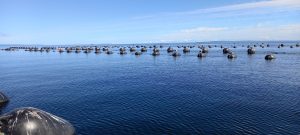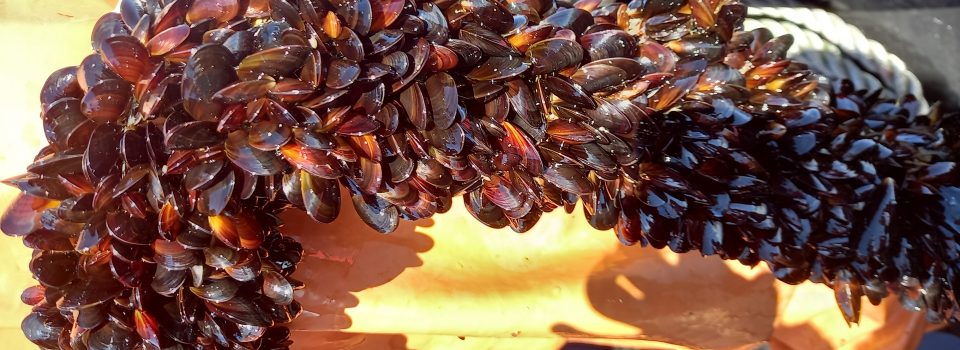A workshop on Dissemination of larvae monitoring and mussels seeds collection was held by IFOP
October 10th, 2022Activity that was carried out in an online format, between 9:30 and 12:30 on Monday, September 26th.
This Monday, September 26th. Fisheries Development Institute (IFOP) held a workshop to disseminate the results of “Monitoring and Surveillance Program on mytilids larval availability for aquaculture activity sustainability in Chilean southern zone IX stage 2021-22”, a study that has been carried out since 2013 and is part of IFOP permanently executed monitoring programs and defined by Fisheries and Aquaculture Undersecretariat.
The workshop was electronically held through Google meet platform. With more than 150 attendees, which highlighted the great interest in what was presented there.
In the workshop, IFOP professionals associated with the monitoring program presented presentations focused on describing collecting mussels seeds activity, from mussel farmers’s point of view, as well as monitoring larvae and seed shedding main results that can be indicators of the industry capture and efficiency. In addition, they presented results of the abundance of larvae in the inland sea of the X Region of Los Lagos, with special emphasis on last season’s results. And at the workshop’s end, a new online reporting system that will make it easier to understand what is happening at the moment for decision-making associated with seed collection was shown.
Mytiliculture and seed collection

Mussel farming is the second most important aquaculture activity at national level (420 thousand tons, 2021), and Chile is currently the main mussels worldwide exporter (100 thousand tons, 2021). This industry is developed mainly in Los Lagos region, and depends entirely on mussel or Chilean mussel (Mytilus chilensis) larvae collection from its natural environment, through the activity known as seed collection. Historically, this activity has evidenced various territorial events of good/bad seed collection. Given the lack of information necessary to understand a key natural process for the sustainability of mussel farming. Fisheries and Aquaculture Undersecretariat asked Fisheries Development Institute to develop a monitoring program that would allow monitoring, describing and, ideally, understanding abundance of mytilid larvae’s natural variations, both in areas where seed collection is carried out and in areas where it is not, within Los Lagos, Aysén and Magallanes regions. The creation of this monitoring program seeks that the authority and mussel farming sector have timely information on variability in mussel larvae availability for seed collection and to identify new potential areas where to develop the activity. Since its implementation in 2013, the monitoring program has operated uninterruptedly and is projected as a permanent activity for base knowledge generation that contributes to seed collection activity sustainability and, therefore, to national mussel farming industry.
For those who wish to dig deeper, the workshop presentations are available for download.
- General context of the “Mytilid Larval Monitoring Program”. Exp. Marina Oyarzún PPT
- Collection of mytilid seeds in the Los Lagos region. A view from the mussel farmers. Exp. Macarena Herrera PPT
- Larvae as an indicator of mussel seed uptake and their detachment as an indicator of efficiency for mussel farming. Exp. Cristina Stuardo PPT
- Monitoring the abundance of mussel larvae in the inland sea of the Los Lagos region: how was last season? Exp. David Opazo PPT
- New online reporting system to increase capacities in regulatory, productive and scientific decision-making associated with mytilid seed. Exp. Cristian Segura. Interact here with this platform
